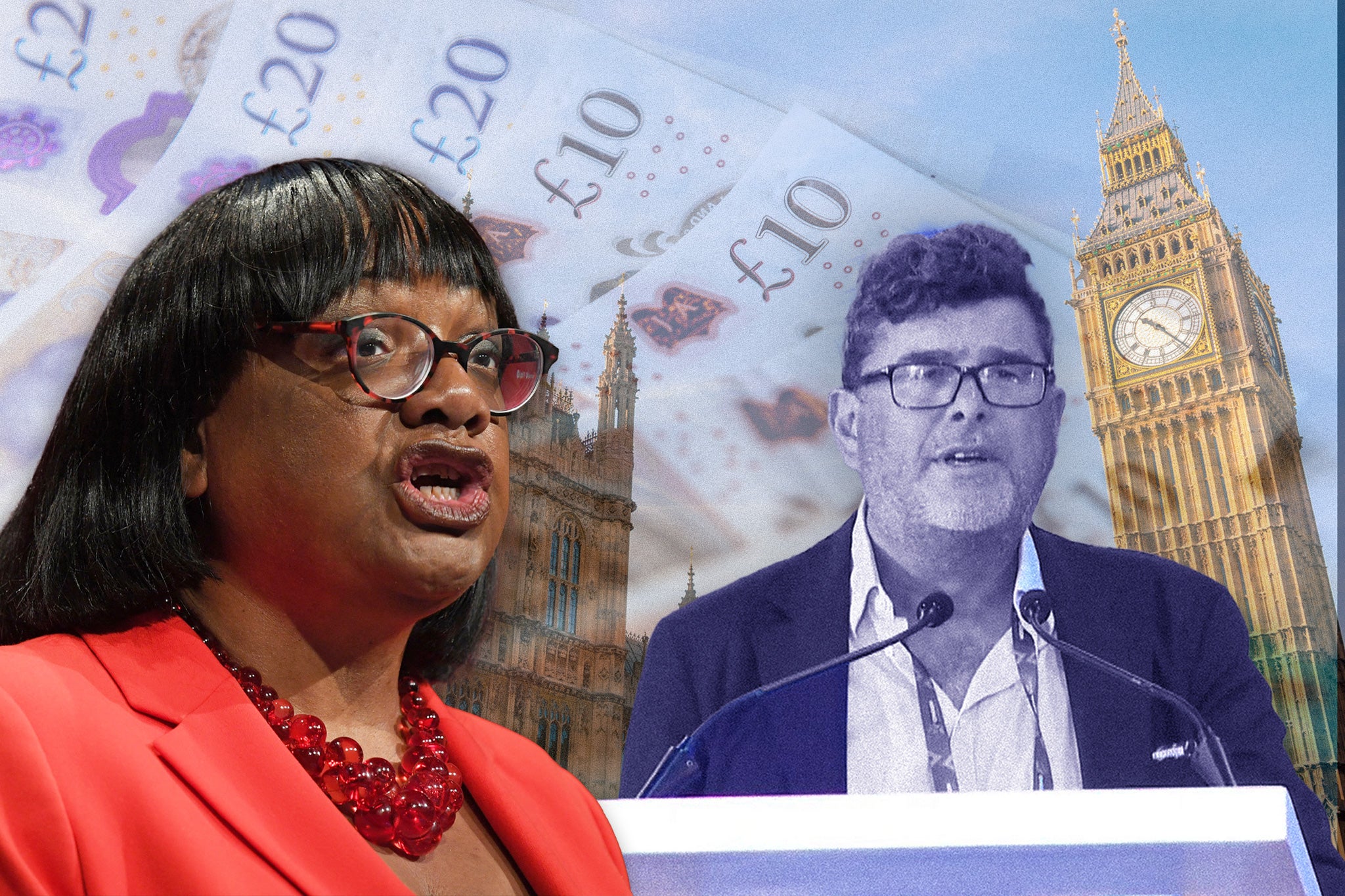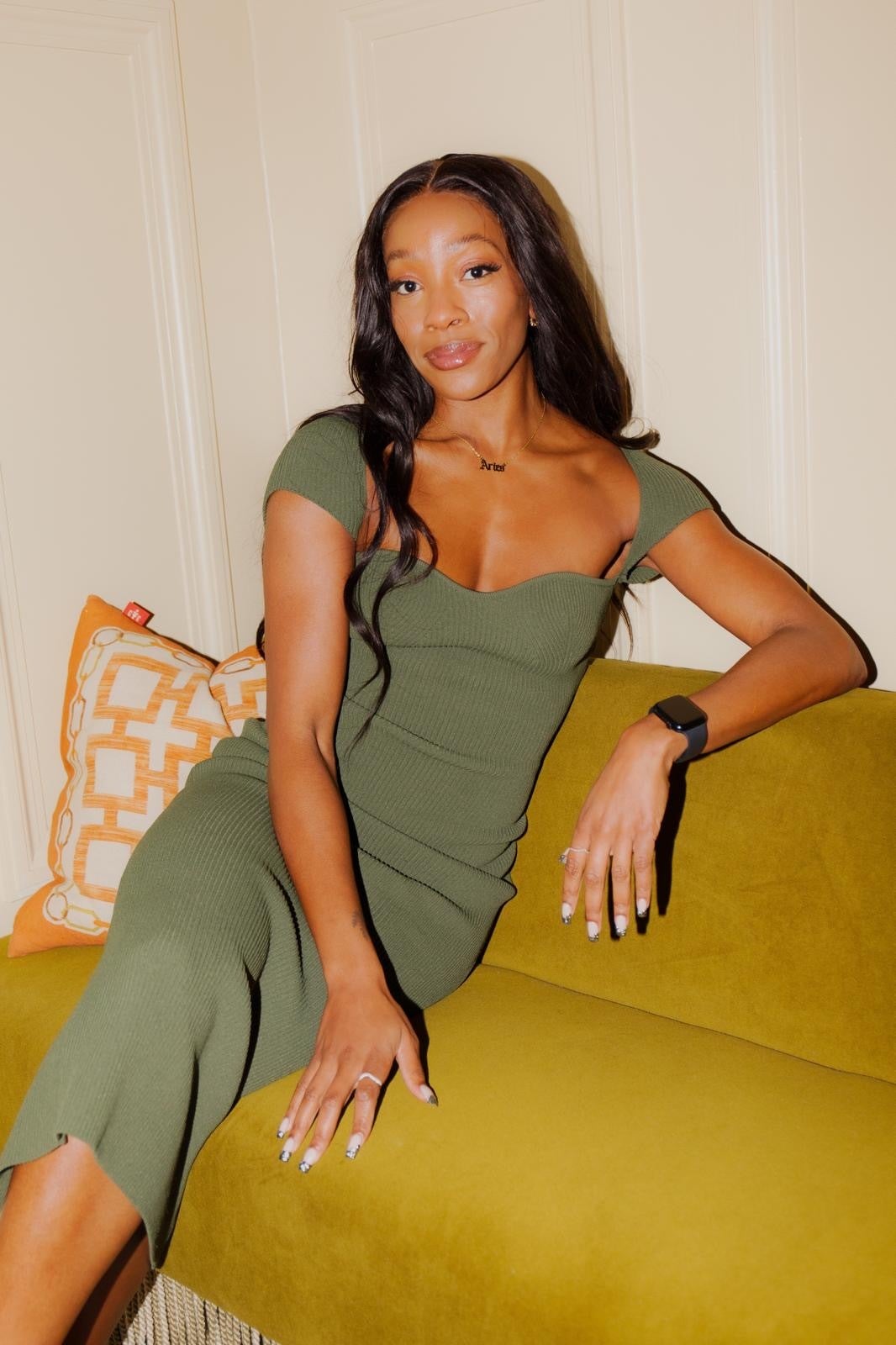If calling for Diane Abbott ‘to be shot’ isn’t racism, then what is?
For the past 24 hours, Chante Joseph has heard people say that a comment about wanting a Black woman shot isn’t racist. For years, she has been told racism doesn’t exist in the UK. Enough. This is gaslighting on an institutional scale, she says

Imagine for one minute you are in your kitchen, just minding your own business making a cup of tea and listening to the news, and someone comes on saying that a Black woman should be shot.
Imagine now you are a Black woman in your kitchen and how this could make you feel. Then imagine how it feels to be told this has “nothing” to do with the colour of your skin or gender.
That is the “parallel universe” position I and thousands of other Black women found ourselves in on Tuesday. Black men will have heard it too. So have other men and women from different ethnicities – from white to right across the spectrum.
I would wager that most people would have been thinking, “Hang on. If saying ‘you see Diane Abbott on the TV and ... you just want to hate all Black women because she’s there ... and you think she should be shot” isn’t coming from a racist place, what the hell does count as racism today?”
The man who made the comments, Frank Hester, the chief executive of The Phoenix Partnership and biggest donor to the Conservative Party, said his comments were “rude” but not “racist”.
We were told they were reportedly made five years ago, but why should that matter? Not only are they still racist, these comments come at a time when the abuse of MPs online and threat to life is serious. Abbott receives the worst and most consistent abuse out of her colleagues and has done so for years and years. As a Black woman, I know exactly how the world can be incredibly unforgiving and cruel to you.
The comments were vile, disgusting and an open and shut case of racism. But they were not met with disgust by many among our political elite. Like clockwork, we were told by a good friend of Hester, Lord Marland – former Conservative treasurer – that there is no way that he could be a racist; he “does a lot of business in Jamaica, in Malaysia, in Bangladesh”.
Surely this is the equivalent of saying “I can’t be racist, I have a Black friend”? Newsflash: you can be, and it doesn’t matter how much you say “I abhor racism”. You have just proven you have a head capable of quite a racist thought.
Frank Hester’s words sting, but what really induces a dizzying psychosis is the denial, the debate and the downplaying of anti-Black racism experiences across British society
The Tories went on the defensive, bleating that they had “the most diverse cabinet in history”, as if that somehow absolves them of being linked to someone like Hester. The first ministers out of the traps said the comments were “unacceptable” but wouldn’t describe them as “racist” or “sexist”.
And neither would Downing Street, at first, until after much pressure they conceded these comments were kind of racist, but Hester was still not racist. We’d all be angry winners if there was a bingo card for post-racist incident events and sayings.
Twenty-four hours later and things have swiftly moved on, and the prime minister is adopting the influencer-coded language of #BeKind to encourage people to accept Hester’s apparent apology and simply move on. Well, let’s find the hashtag for “No, not gonna”, shall we?
According to our government, institutional racism does not exist; it is already hard to get people to understand the severity of these issues when they see racism as an individual problem and not part of a broader cultural acceptance of anti-Black hatred that is allowed to thrive.
Black Labour MP Abena Oppong-Asare put it perfectly when she said she felt “gaslighted” by this incident. I did – every single person who has experienced racism did.
We are told repeatedly our experiences are somehow in our heads and don’t happen, when we experience racist incidents all the time. We are used to being told these small incidents don’t happen or aren’t racism, but if even the most egregious acts of racism are not taken seriously, then what hope do we have?

Speaking out feels futile if our realities can be denied and ignored on such a bright stage. Hester’s words sting, but what really induces a dizzying psychosis is the denial, the debate and the downplaying of anti-Black racism experiences across British society.
We should be using this time to reflect on why these sorts of mortifying things are said, but instead we are debating whether or not words mean things. An otherwise important issue has been turned into a trivial culture war debate on whether or not someone is racist for explicitly saying that a Black MP made them want to hate all Black women and that they would like that MP to be shot.
To dial up the insanity, right-wing pundits like Nana Akua are called on in moments like this to really distract and sensationalise the issue. Watching a Black woman go on to a TV show this morning and minimise Hester’s comments by insisting that Diane is a “mess” (and, what, so somehow deserves this abuse?) was astounding.
At the centre of this madness is a brave woman who has spent decades in public office and has faced the kind of abuse that most people will never see in their entire lives. It doesn’t matter what you think about Abbott, if you can’t see someone calling her to be shot, therefore suggesting her whole existence is a waste of resources, shouldn’t be called out for what it was – racist from a place of racism – there is something deeply wrong.
Like so many Black women, I do find Diane’s strength and power awe-inspiring, so these past 24 hours have been heartbreaking, but it also feels devastatingly personal.
But, I am not hopeful justice will be served because as long as we are unable to recognise and dissect the harm caused, there is simply no way people will take anti-Black racism seriously. Instead of highlighting the plight of Black women who desperately need support and action, we will be caught in the endless loop of having the wrong conversation.
Chante Joseph is an award-winning podcaster and presenter of Channel 4’s ‘How Not to be Racist’





Join our commenting forum
Join thought-provoking conversations, follow other Independent readers and see their replies
Comments